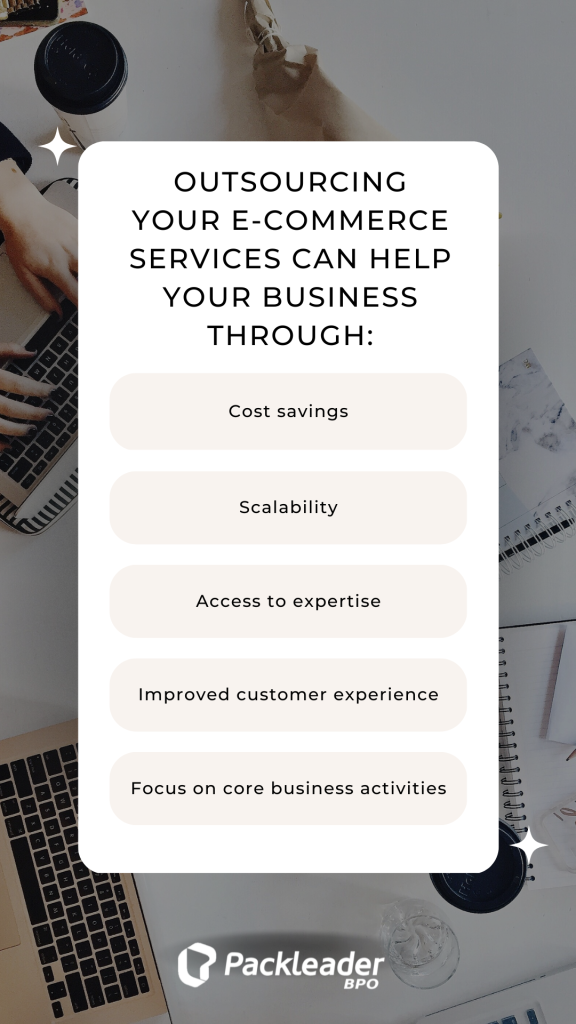Introduction
Meet Hannah, an avid online shopper who recently had a frustrating experience with an ecommerce website.
After encountering difficulties with her purchase, Hannah attempted to seek a refund, only to be met with poor customer service that left her feeling disappointed and unheard,
I couldn't believe how difficult it was to get a simple refund," Hannah recalled, "Their customer service was so poor and unhelpful, with absolutely zero empathy. I got the refund, but I am never going back.

Hannah’s experience is not an isolated one. She will likely go on to tell her friends and families or post her situation on social media, creating a negative ripple effect. This could result in the loss of dozens, if not hundreds, of customers who may become hesitant to patronize that business.
While it’s true that no business is flawless, and there may be occasional hiccups and dissatisfied customers, it’s important to acknowledge that customers tend to feel more loyal to brands that take action to address their complaints. A recent study by Forrester revealed that consumers overwhelmingly agreed with this sentiment.
A separate study by GE Capital Retail Bank revealed that 81% of shoppers research online before making big purchases. If Hannah has left an online review of her experience, a big chunk of their potential customer base will likely see it.
Hence, the significance of customer service in today’s market cannot be overstated. This article explores outsourcing your ecommerce customer services to a BPO (Business Process Outsourcing) service provider and how your business can benefit from such an arrangement.
The rapid shift of e-consumerism
Have you ever wondered how long online shopping has been around? For some, there has never been a time when mail order wasn't an option. But while ecommerce began in the 1970s, it only gained significant momentum in 1995 when Amazon and PayPal (then called Confinity) stepped into the interwebs. Within a month of Amazon's launch, they were shipping to 45 countries.
Over the years, we've watched ecommerce pick up speed, and in 2020, with the pandemic, lockdowns, and social distancing measures, online shopping saw a massive surge in popularity.
In fact, ecommerce sales increased by 77% worldwide, accelerating the industry by four to six years ahead of its time. This study finds that ecommerce sales are expected to account for 20.8% of global retail sales in 2023. Aside from the pandemic, the rise of online shopping has inevitably picked up popularity for several reasons:
- Businesses can reach a wider audience and customer base beyond their physical location.
- Reduces overhead costs associated with maintaining a brick-and-mortar property.
- Customer-convenient: shop from anywhere with goods delivered to your doorstep.
- Valuable data insights that can help improve marketing and sales.
We can all agree that e-commercialism is more popular than ever. But how are retailers faring with the dramatic shift? Let’s take a look at some of the drawbacks retailers may find in building and maintaining their online presence:
Ecommerce retail challenges
- Limited resources: Small to medium-sized retailers often have limited resources, both in terms of finances and staffing, to invest in building their online presence.
- Technical expertise: Building an ecommerce website requires technical knowledge in web design, coding, and search engine optimization (SEO). Many retailers may lack the technical expertise or the budget to hire experienced developers
- Competition: The online retail market is highly competitive, with large players like eBay dominating the space. This makes it challenging for smaller retailers to stand out and attract customers.
- Logistics: ecommerce requires efficient logistics and fulfilment systems to ensure timely delivery of orders.
- Customer trust: Building customer trust is crucial for ecommerce success, and this can be challenging for small retailers without an established reputation or brand recognition.
How BPO companies can help ecommerce retailers
BPO (Business Process Outsourcing) companies can provide a range of ecommerce support services to help retailers enhance their online presence and elevate their customer experience. These services can include:
- Customer service:BPO companies can provide customer service support for online shoppers, including answering queries, resolving complaints, and providing post-sales support. They can do this through various channels like phone, email, chat, or social media.
- Order processing: BPO companies can manage the entire workflow, including order verification, payment processing, and order tracking. They can also handle returns, refunds, and exchanges.
- Digital Marketing: BPO companies can also provide digital marketing services to ecommerce retailers, such as search engine optimization (SEO), pay-per-click (PPC) advertising, social media marketing, email marketing, and content creation. By outsourcing these activities to BPOs, ecommerce retailers can focus on their core business activities while leveraging the expertise of the BPO company to enhance their online visibility, attract more customers, and boost sales.
- Fulfilment: BPO companies can provide end-to-end order fulfilment services, including inventory management, picking and packing, shipping, and delivery. They can also offer warehousing and storage solutions and manage returns and exchanges.
- Customer trust: Building customer trust is crucial for ecommerce success, and this can be challenging for small retailers without an established reputation or brand recognition.

BPO companies have the expertise and infrastructure to provide efficient and reliable ecommerce support services. They employ trained professionals who can handle customer queries and complaints promptly and professionally, ensuring customer satisfaction. They also have robust systems and processes to ensure seamless order processing and fulfilment, resulting in faster delivery and improved customer experience.
By outsourcing ecommerce support services to BPO companies, retailers can focus on core business activities such as product development, marketing, and sales. In contrast, BPO companies take care of the operational aspects of their ecommerce business. This can improve efficiency, reduce costs, and increase retailer profitability.
Proven success
Outsourcing ecommerce services has proven beneficial for many retailers, with numerous successful partnerships between retailers and BPO companies such as eBay, Shopify and Walmart. The aptest example is Amazon, which began in the Bezos' garage nearly two decades ago.
Amazon has long been renowned for its exceptional customer service, which founder Jeff Bezos coins as its 'customer obsession.' By prioritizing customer satisfaction, with customer support from over 75 locations worldwide, the ecommerce powerhouse has diversified into a range of retail services with a market capitalization of over $1 trillion- a long, long way from its humble beginnings as an online bookstore in a Seattle garage.
We can help your ecommerce business grow.
If you're a retailer looking to enhance your online presence and improve your ecommerce operations, Packleader BPO can help.
Our experienced team of ecommerce support experts can provide you with a range of services, including customer service, order processing, and fulfilment, to help you provide your customers with seamless ecommerce experiences. With over 3 million transactions handled, you can trust you're in good hands.
Contact us today at Packleader BPO to learn how we can help you enhance your online presence and take your ecommerce operations to the next level.
